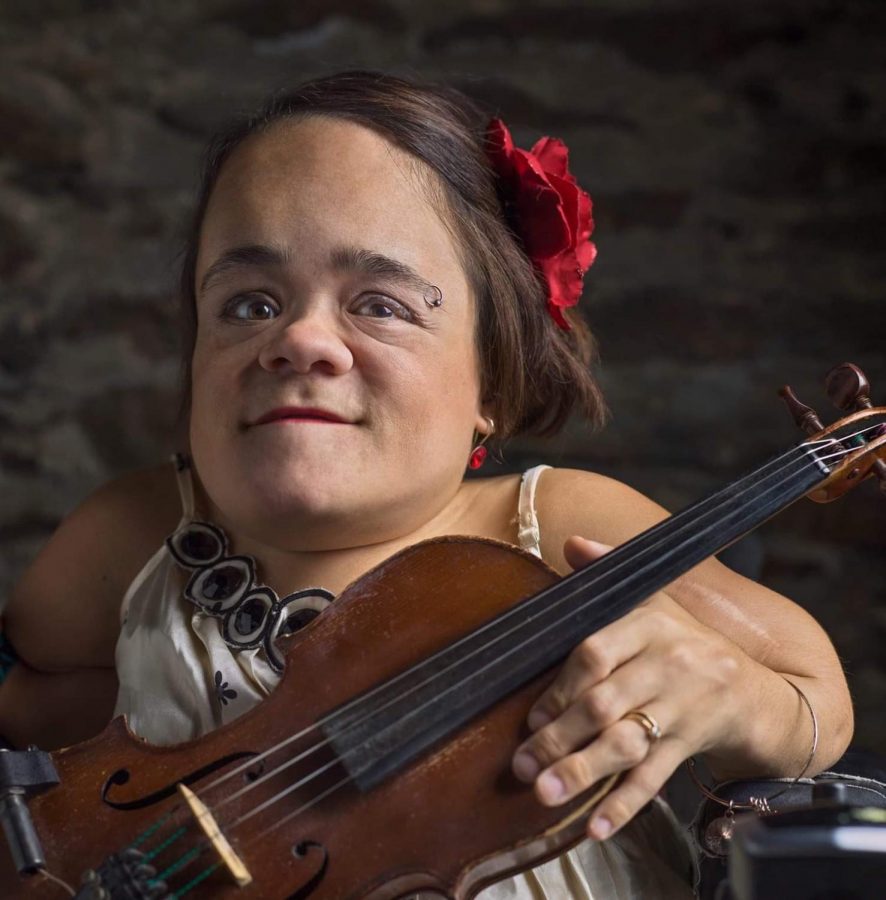Gaelynn Lea comes to Grand Rapids
Aug 18, 2019
Award-winning vocalist and violinist Gaelynn Lea will be performing a concert at the Pyramid Scheme in Grand Rapids on Aug. 22.
Lea won NPR Music’s Tiny Desk Competition in 2016. She was selected as the champion out of thousands of competitive submissions from musicians across the country. Since her win, she has continued to produce original music and tour nationally and internationally.
She describes her unique sound as “experimental folk.” While she said it is “folk at the root,” her use of technology distinguishes her sound from popular styles of folk.
During Lea’s solo performances, she uses a looping pedal to develop layers which create the illusion of a big band. By managing the pedal with her foot, Lea creates her complex sound by recording her playing the violin and then plays the live recording back in a loop as she adds more vocal and instrumental layers to the song.
In 2015, Lea released her debut album, “All the Roads That Lead Us Home.” Following Tiny Desk, Lea released two albums and various singles. “Deepest Darkness, Brightest Dawn” and “Learning How to Stay” were released in 2016 and 2018 respectively. Her most recent album included her most-streamed single, “Someday We’ll Linger in the Sun.”
Seeking inspiration from life experiences, Lea’s original songs explore struggle, love and the slices of life in between. She said a theme present in her music is the “contrast of light and dark and how life is both at the same time.” While life can bring bad times, she tries to look at each obstacle with optimism.
Lea’s instrument is the violin, however, her disability prevents her from being able to hold the instrument in the traditional position. In order for Lea to play the violin, she holds it in an upright position like one would hold a cello.
While on tour, Lea doubles as a disabled rights activist. In between concerts, Lea makes time to stop at schools and other venues to speak about her experiences and perspective as an artist with disabilities. She began speaking on disability rights a year before she won Tiny Desk.
Lea said she typically likes to begin her speeches by educating the audience on the history of disability rights. She said she does this to help the audience see what life is like for disabled people and their underrepresentation throughout history.
Accessibility is also a topic which Lea often speaks on. She said she wants to focus on helping the disabled community grow more represented in art and culture.
“Disabilities should be looked at as diversity rather than something that needs to be pitied or shamed,” Lea said.
She added that disabilities go beyond the medical aspect, and people with disabilities belong to a culture who have voices and create unique art. She said this view is a “healthier and more positive way to look at it.”


























